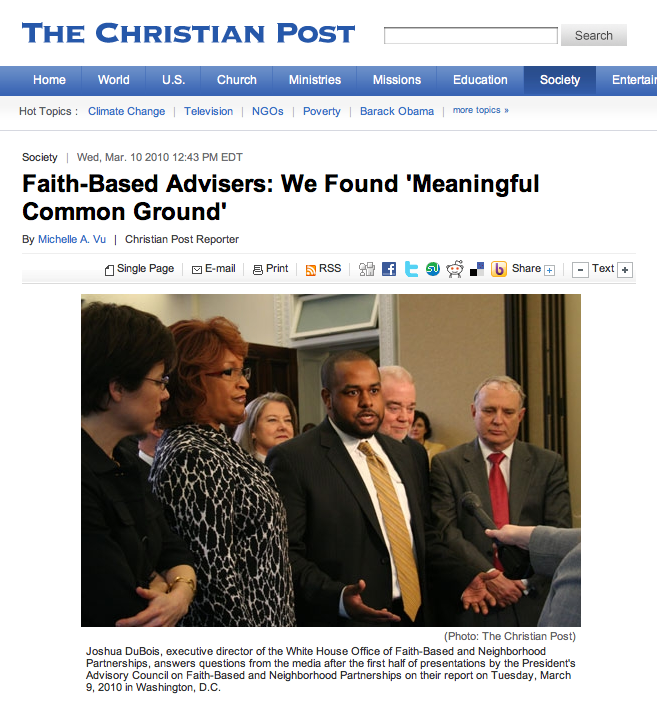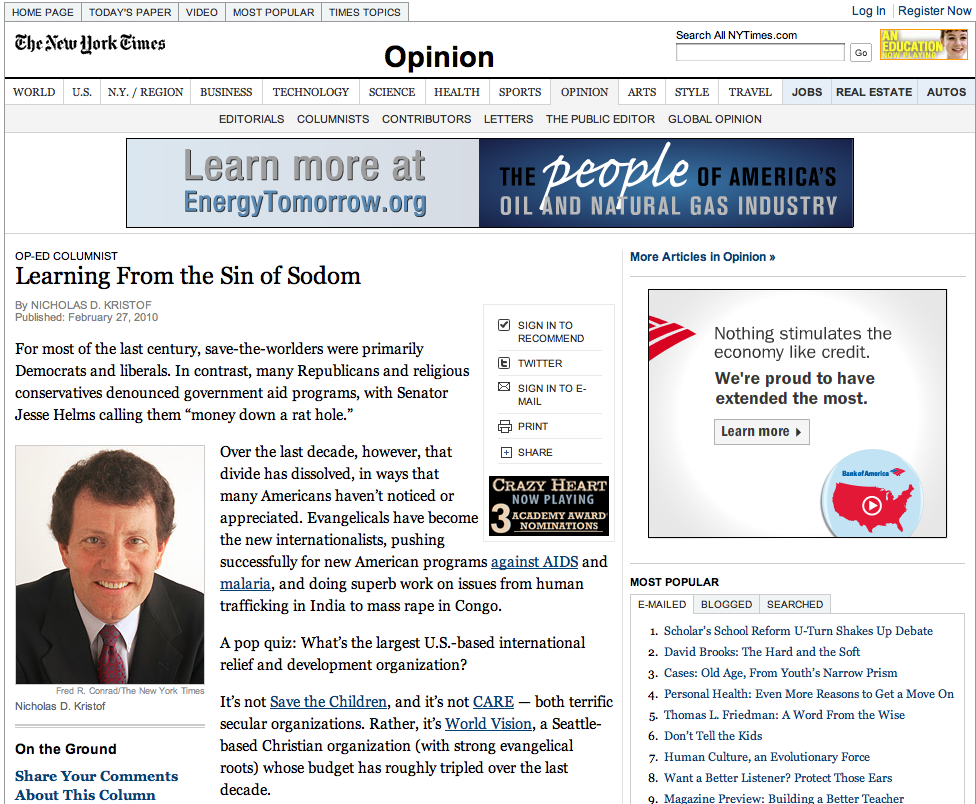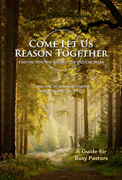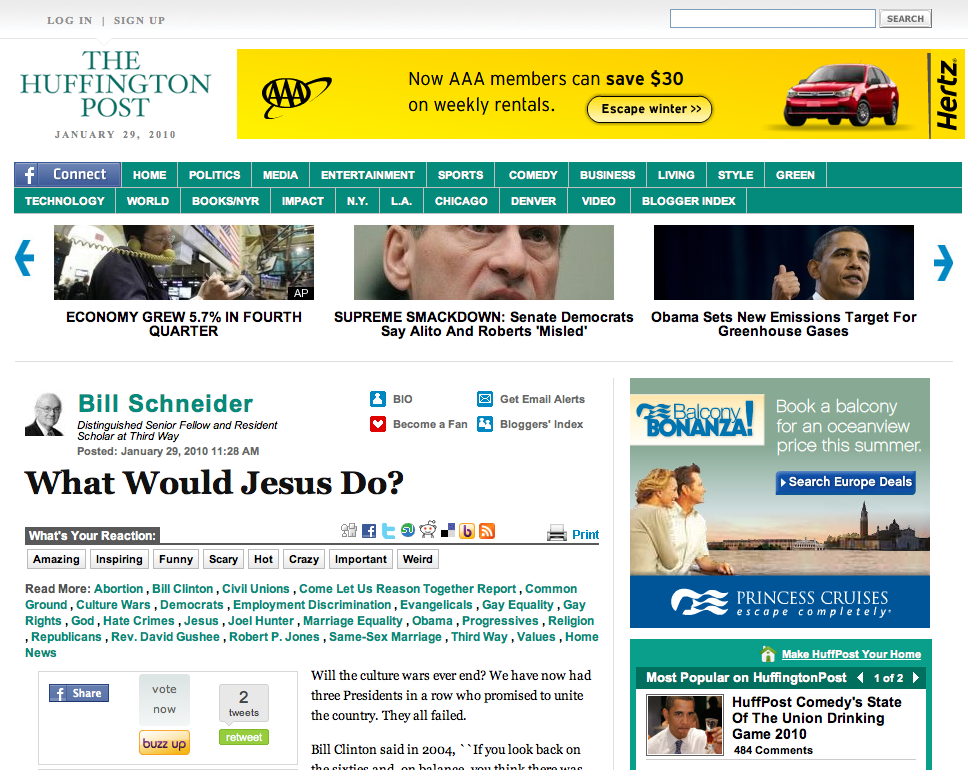NEWSWEEK: White House Religion Panel "Gets It Right"
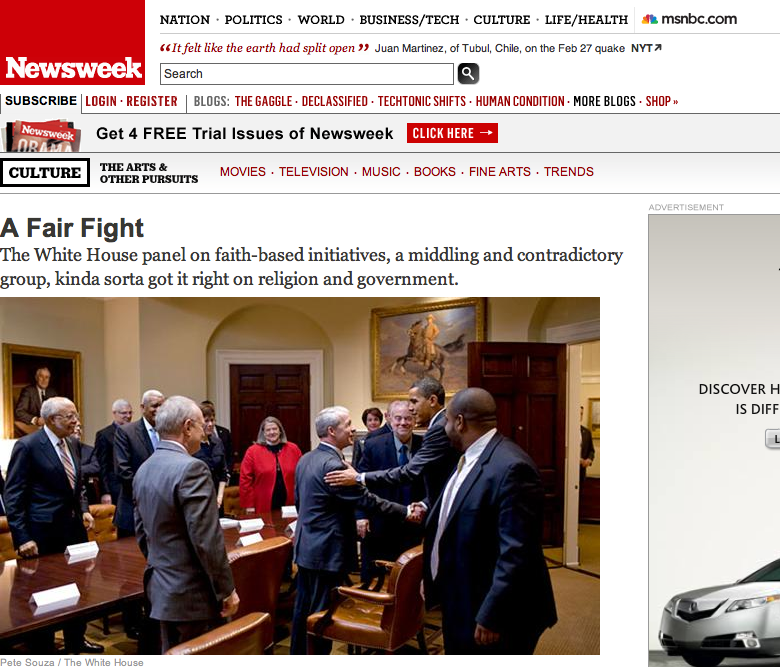 By Lisa Miller | Newsweek.com | Mar 10, 2010
By Lisa Miller | Newsweek.com | Mar 10, 2010
There has been some bellyaching in recent months—including by me, and also especially in The Washington Post—over the relevance and influence of the task force of the White House Office of Faith-Based and Neighborhood Partnerships (a god-awful mouthful of an administrative tag if ever there was one). This was a committee of about two dozen people, appointed by President Obama just over a year ago, asked to address some of the country's most important values issues and make recommendations to the president. Rumors persisted that relations within the council were acrimonious and, given that council members had such differing views on questions of faith—they were progressive and conservative and were at odds over the best government role inside churches and other faith-based institutions—there was no way to hammer out any but the lowest-common-denominator type of resolution. The most persistent complaint, and the one that I continue to hear, is the worry that their recommendations, which they offered to the president this week, would not get a fair hearing at the highest levels of the administration.
That would be a shame. The report addresses interrreligous dialogue, climate change, fatherhood, and poverty among other things. There are, certainly, some namby-pamby recommendations in the report—upholding fatherhood as a good thing, for example—but elements of the report have heft. Especially serious and provocative are the task force's recommendations on the subject of reforming the Office of Faith-Based and Neighborhood Partnerships itself. Though bureaucratic and unsexy, these recommendations essentially demand that the administration clarify the muddy and inconsistent ground rules for religious groups seeking federal funds for charitable work. This has long been a legislative and administrative quagmire, characterized by misunderstandings, favoritism, and legal challenges. At this moment in time, when Boston's Catholic Charities has closed its historic adoption agency rather than take government money and so be required to adopt children to homosexual married couples, such clarification would seem necessary indeed.
Council members were able to agree that the constitutional separation of church and state is foundational and that recipients of government money be more clearly informed about what that means in terms of their activities—at the federal and at the local level. Most interesting, the task force asked the president to revise language that bars religious groups receiving federal aid from "inherently religious activities, such as worship, religious instruction and proselytizing" saying the word "inherently" allowed too much room for misunderstanding. "Explicitly," they said, would be a better word choice.
The task force was also able to agree that protecting the religious identities of religious institutions is crucial. They disagreed over things like whether a religious organization receiving government aid could perform social services in a room containing religious symbols, and whether churches receiving government money should be required to set up a separate corporation for those funds. In a political environment of gridlock and frustration, the clarity of these agreements—and even of the disagreements—is welcome.
The most difficult question, however, was left aside, for the Department of Justice to decide at another time. This is the question of whether faith-based organizations receiving government money should be able to hire and fire based on religion. This fight is a mini culture war in itself, for it goes to the question of religious and civic identity. The left sees it as a question of civil liberties, the right one of unwelcome government intervention in the lives of private institutions. Conservatives and liberals promise that this is a hill upon which they are willing to die.
Now the White House task force has disbanded, and a new one—along with new issues—has not yet been named. Which of the task force recommendations will be adopted, and when, remains the driving question; if the president delays, he will have squandered considerable goodwill. In the meantime, I will make my own recommendation. Please change the name of the faith-based office. Please.
Lisa Miller is NEWSWEEK's religion editor. Her book Heaven: Our Enduring Fascination With the Afterlife is due out from Harper in March.
Find this article at
http://www.newsweek.com/id/234706
© 2010
